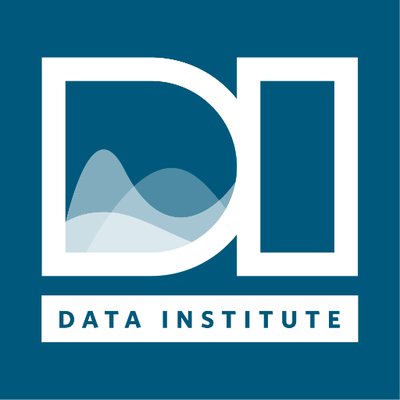At: University of San Francisco Location: San Francisco, CAWeb: www.usfca.edu/data-institutePosition: Postdoctoral Fellowship, Data Institute
Location: San Francisco, CAWeb: www.usfca.edu/data-institutePosition: Postdoctoral Fellowship, Data Institute
Contact:Apply online.
Job Summary:
The Data Institute at the University of San Francisco is proud to invite applications for a postdoctoral position starting in August 2019. Launched in the summer 2016, the Data Institute was founded with a four part mission: to find new and innovative ways to break down the walls between academia and industry; advance pure and applied data science research; build and foster an inclusive data science community; and train the next generation of data scientists.
Associated academic Data Institute programs include the Bachelors in Data Science (BSDS ), Masters in Data Science (MSDS ) and several continuing education certificates (Deep Learning, SQL , Exploratory Data Analysis, etc.). MSDS includes state of the art education in data science and bridges knowledge-to-practice through a 9-month practicum that provides students the opportunity to be mentored and solve important data science problems with companies like Under Armour, Eventbrite, Mozilla, and Reddit.
The MSDS and the BSDS programs, with the support of the Data Institute, are interdisciplinary degree programs with a diverse and growing community of full-time faculty members from Data Science, mathematics and statistics, and computer science.
The data science faculty at USF and the Data Institute pursue academic excellence and are committed to fostering an environment in which faculty, staff, and students from a variety of backgrounds, cultures, and personal experiences are welcomed and can thrive.
Job Responsibilities:
The position is aimed at recently graduated doctoral students (0-4 years from completing their Ph.D.) from STEM fields who are interested in postdoctoral training and a career in either industry or academia. Training and opportunities the postdoc will receive include:
- Dedicated research mentoring from affiliated faculty with specialties in deep learning, natural language processing, databases, statistical modeling, network analysis, algorithms, unsupervised learning, machine learning, optimization, experimental design, health analytics, signal processing and other areas of applied mathematics, statistics, computer science and data science.2. Research funding to support travel and dissemination of research.3. Access to the computing resources at USF and the Data Institute that includes GPU clusters as well as Amazon Web Services resources.4. Teaching opportunities (no more than 1 course per year) in the candidate’s area of specialty in undergraduate or graduate data science courses (including, but not limited to the courses currently offered in the BSDS and MSDS curricula already developed at USF ).5. Access to specialized courses established at the Data Institute and the graduate programs at USF including in deep learning, databases, large-scale computing, statistical modeling and other areas of Data Science to complement the postdoctoral candidate’s current training and expertise.6. Opportunity to mentor or co-mentor graduate students on industry practicum projects, which will expose the fellow to practical data science problems in industry.7. Direct assignment and support by a sponsoring DI corporate, foundation, government or non-profit partner and a mentor for an advanced research project in data science.
Minimum Requirements:
Candidates should possess an earned doctorate in the appropriate field of study by August 2019. This position may be renewable annually to a maximum of two years and is not a tenure-track position.
For information on how to apply, please visit the following link: http://apptrkr.com/1310710
EEO PolicyThe University of San Francisco is an equal opportunity institution of higher education. As a matter of policy, the University does not discriminate in employment, educational services and academic programs on the basis of an individual’s race, color, religion, religious creed, ancestry, national origin, age (except minors), sex, gender identity, sexual orientation, marital status, medical condition (cancer-related and genetic-related) and disability, and the other bases prohibited by law. The University reasonably accommodates qualified individuals with disabilities under the law.